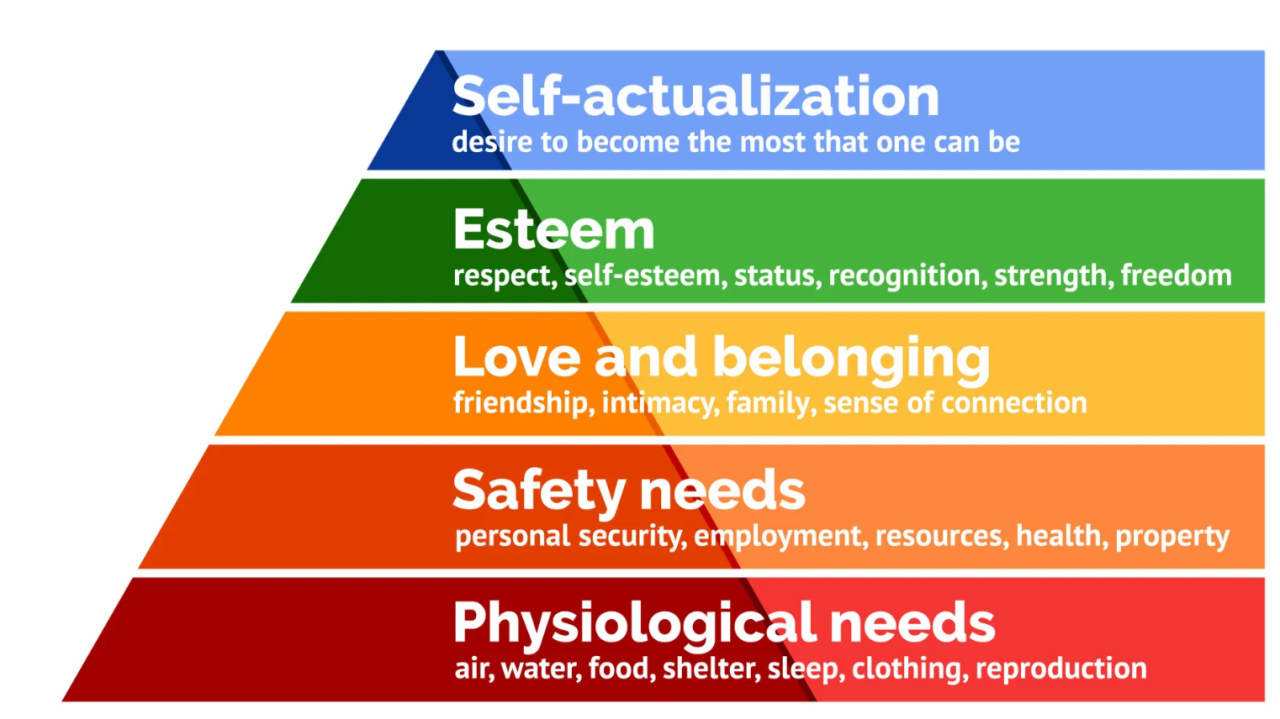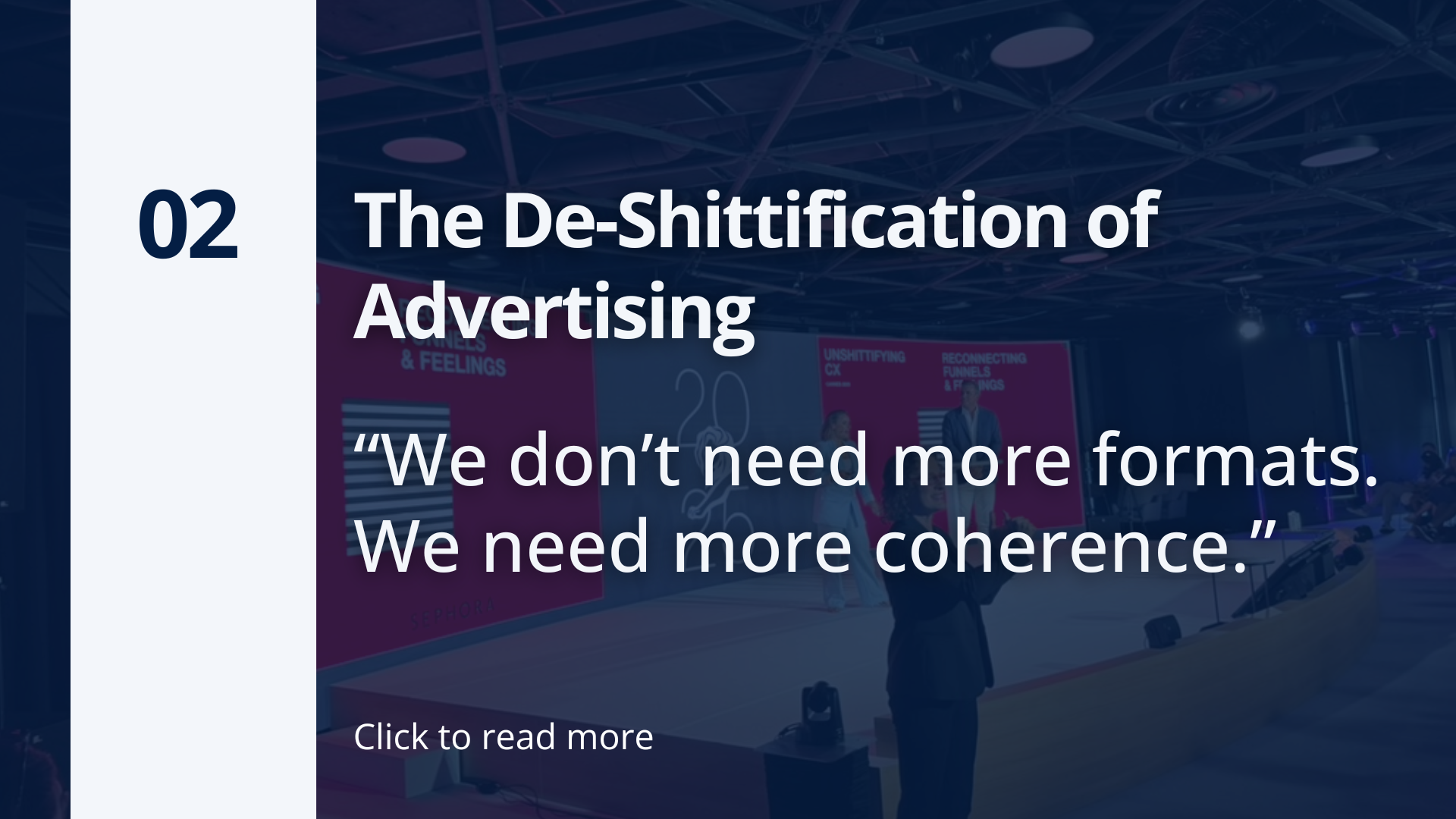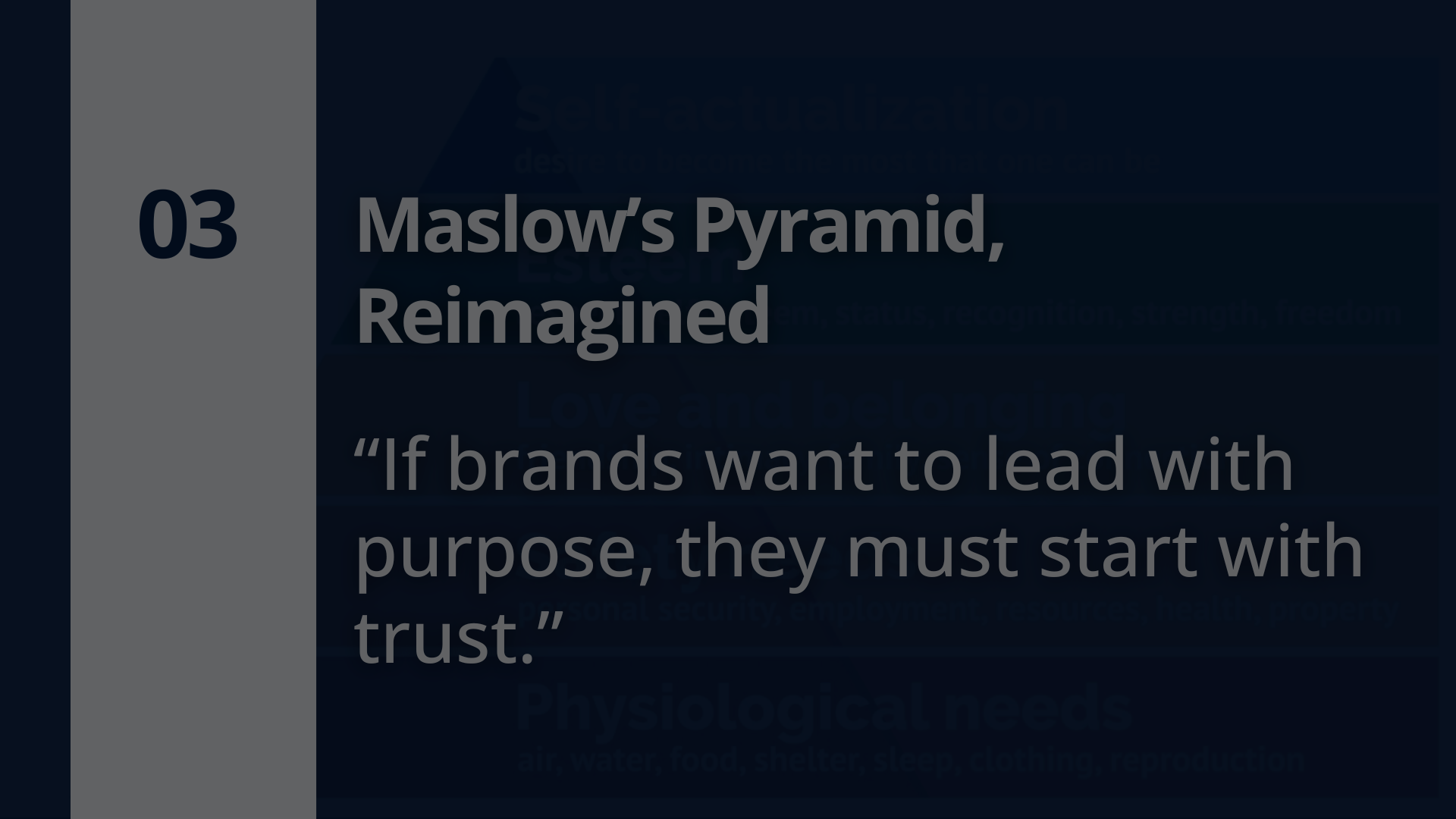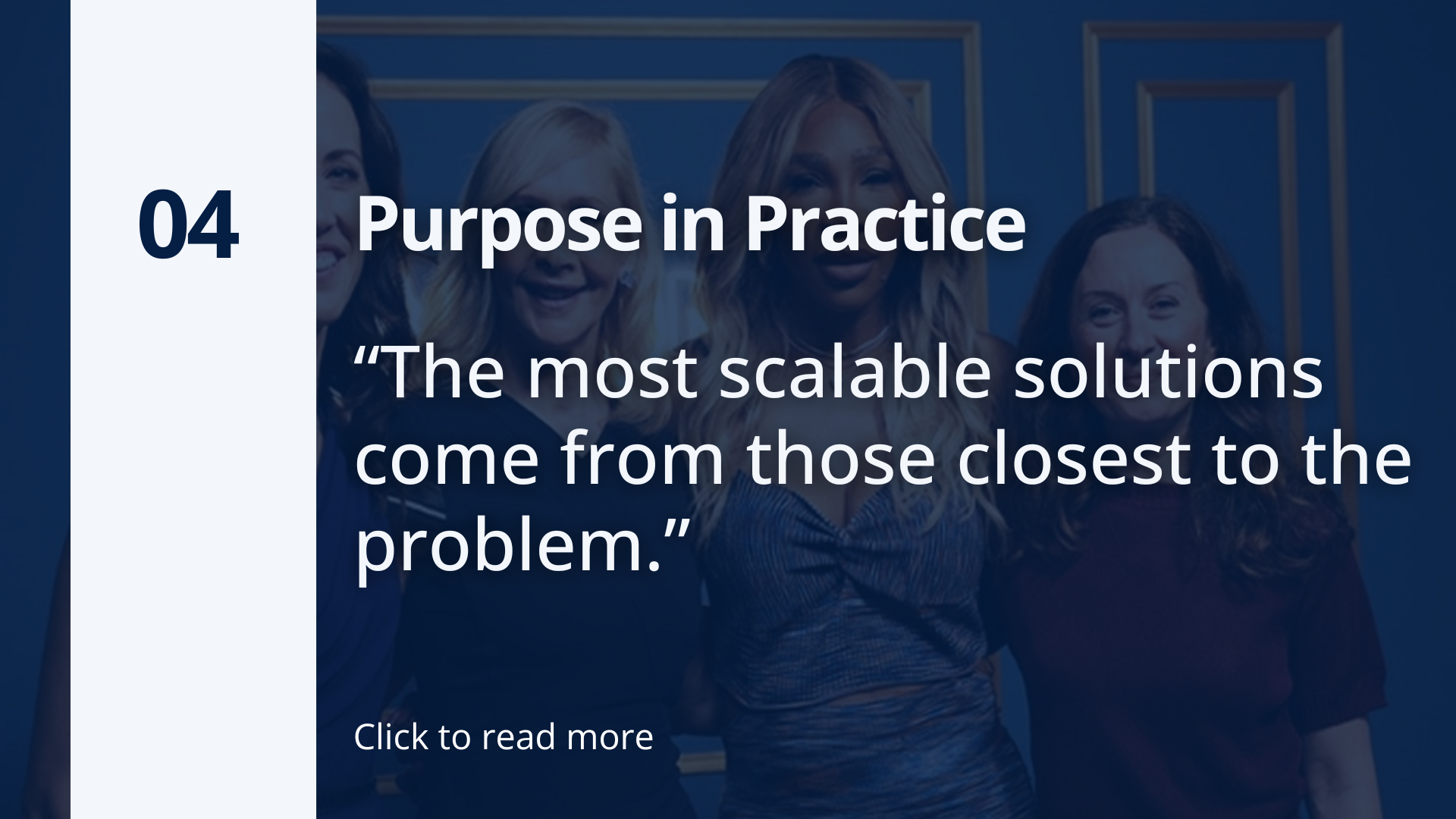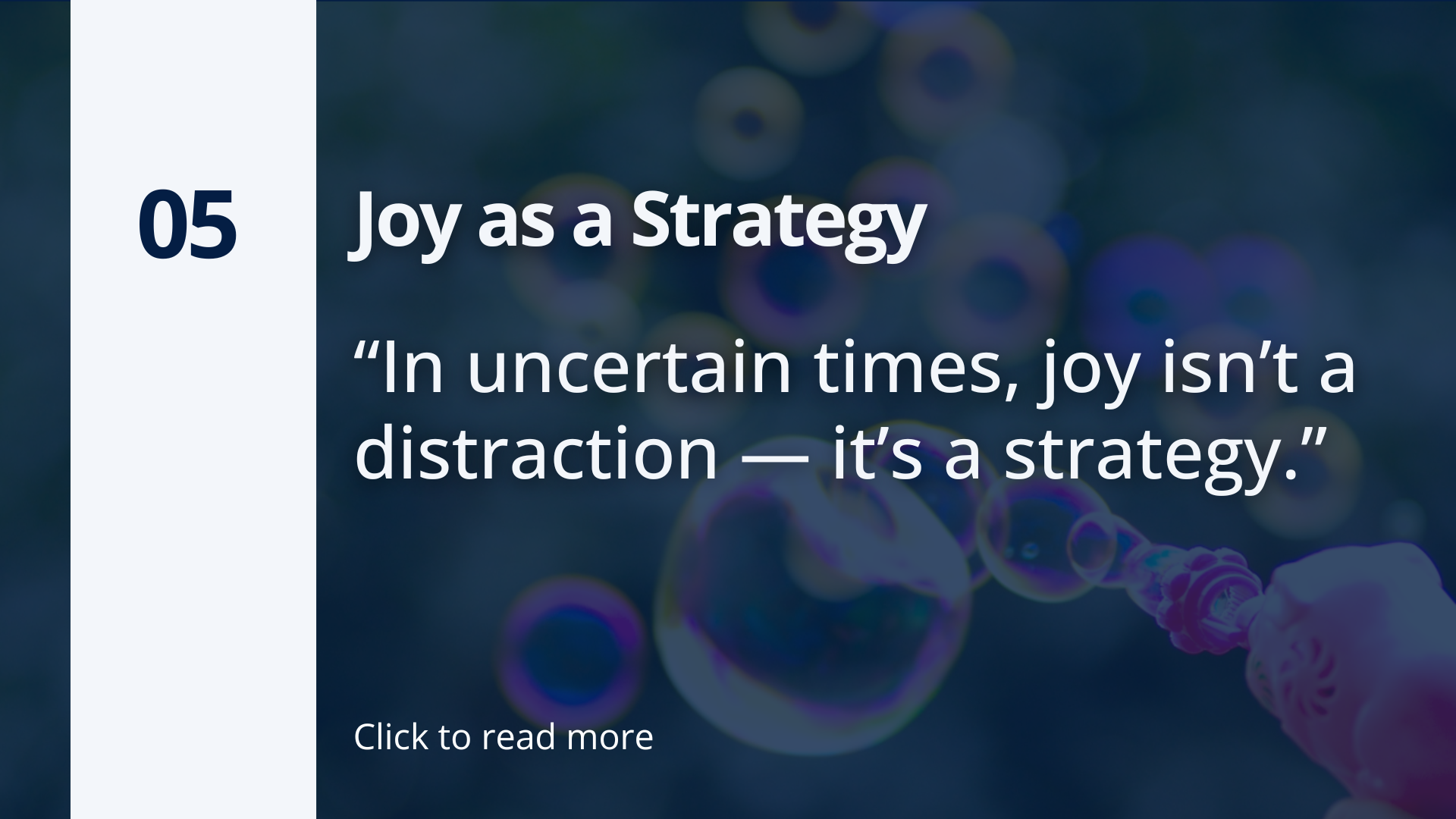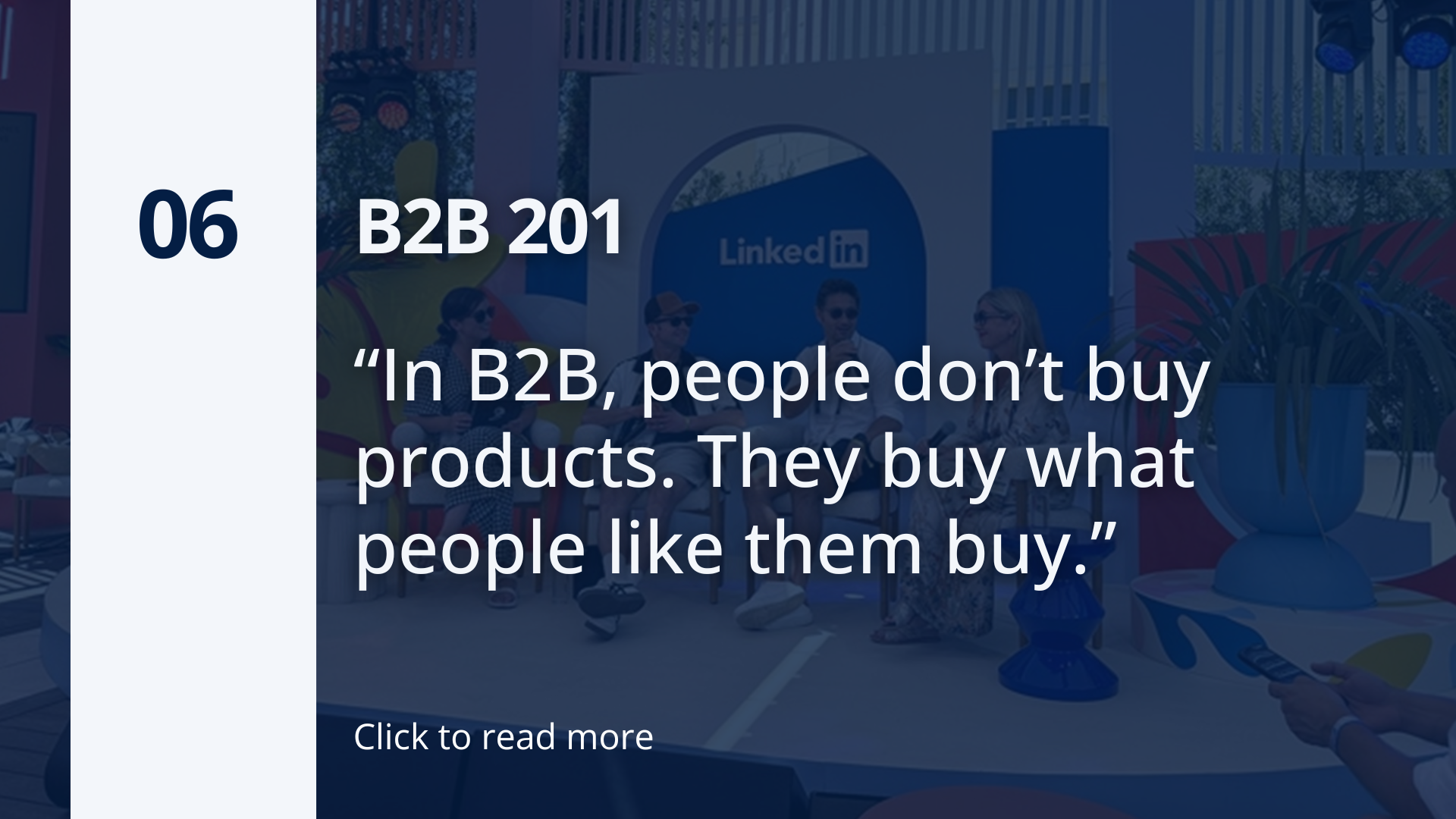By Sonia Carreno, President, IAB Canada
Day two at Cannes had a lot of insightful gems throughout the day. Rather than delving into a singular session, I will try to weave a narrative around one of my favourite psychological models – Maslow’s hierarchy of needs. Anyone who knows me well, knows that I love to use this and the yogic chakra structure to communicate various states of the human condition and use it to decode everything from meditation to targeting media. Today’s talks throughout the Palais had me reveling in connection. Tragically, the story as told by Alex Jenkins, Editorial Director at Contagious, unfolds with a pyramid that is seriously cracking at all levels.
Foundationally, trust is to blame.
In a sobering presentation, Richard Edelman, CEO of Edelman told a story of “four hammer blows” – these consisted of the pandemic, several wars, inflation, and job insecurity. Combined these collective experiences have created an overall scarcity sentiment which in turn has negatively impacted people’s sense of security and ultimately has pushed a large population back to survival mode.
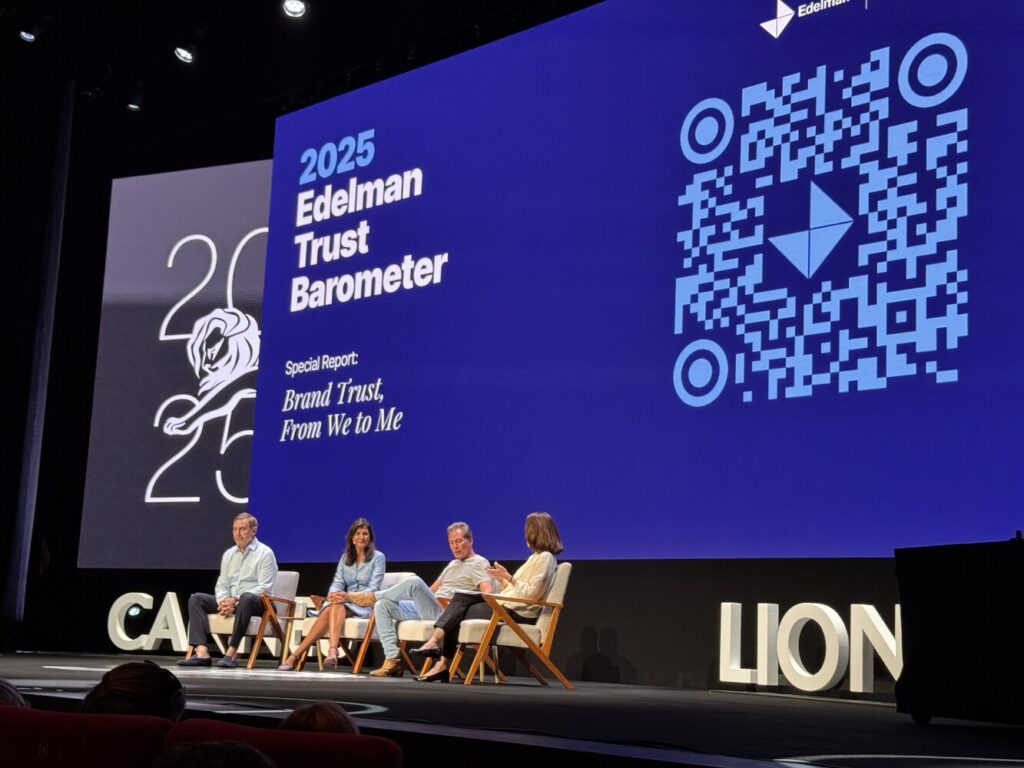
Edelman went on to explain that 50% of Gen Z reports skipping meals, and with inflation driving pizza to cost $18, the days of hypotheticals and abstract economics have now become very real. Citizens globally are questioning whether their world is financially and physically safe. Reflecting on a recent FCB / Angus Reid study exploring Canadian sentiment, I recall the stark numbers – 76% of Canadians are feeling angry, 51% are feeling disengaged and almost half of us (48%) are feeling insecure in our jobs.
The rungs of Maslow’s hierarchy are collapsing under pressure. Safety, belonging, self-esteem and self-actualization are teetering and threatening to fold in on themselves. We’re living in a world that is increasingly protectionist and isolated. I once joked with a peer about the notion of Communi-ME: a world that has community at arm’s length and caters more to introverted and individualistic needs – somehow, looking at it in this context, seems less funny.
Can Brands Provide Therapeutic Scaffolding?
Oddly, in this era of uncertainty and extremely low trust in government institutions, brands have managed to rise out of the fire as beacons of trust. While this is music to our industry’s ears, we must reckon with the great responsibility this places on us all.
Brands like therapy chameleons, are not exactly qualified therapists (incidentally, cited as the number one use of ChatGPT across a few conversations today). No, consumers are turning to them because they happen to be there. They represent personal agency and choice. One can take them or leave them. We should not underestimate that power.
In all the discussions we have about connecting to consumers, being authentic and developing true resonance, the new imperative is all about emotional anchoring. Reaching them where they are emotionally, assuring them and making them feel seen, heard and safe. People need some optimism injected into their lives, encouragement and faith. The new brief for brands is now levelled up to a much more robust purpose – it’s one that demands relief.
A Vision of Survival
In today’s opening session, tennis great, Serena Williams shared a glimpse into her personal grit. Growing up in Compton, she identified as an entrepreneur at a very early age as a survival instinct. She needed to create her own story on her own terms. This was out of necessity not because it was trendy. Serena knows something about the needs pyramid. Today she announced that she is joining Reckitt’s new initiative entitled Catalyst as Entrepreneur in Residence where she’s not just investing in ideas—she’s investing in actualization. For women. For people of colour. For founders who are building from the bottom of the pyramid up.
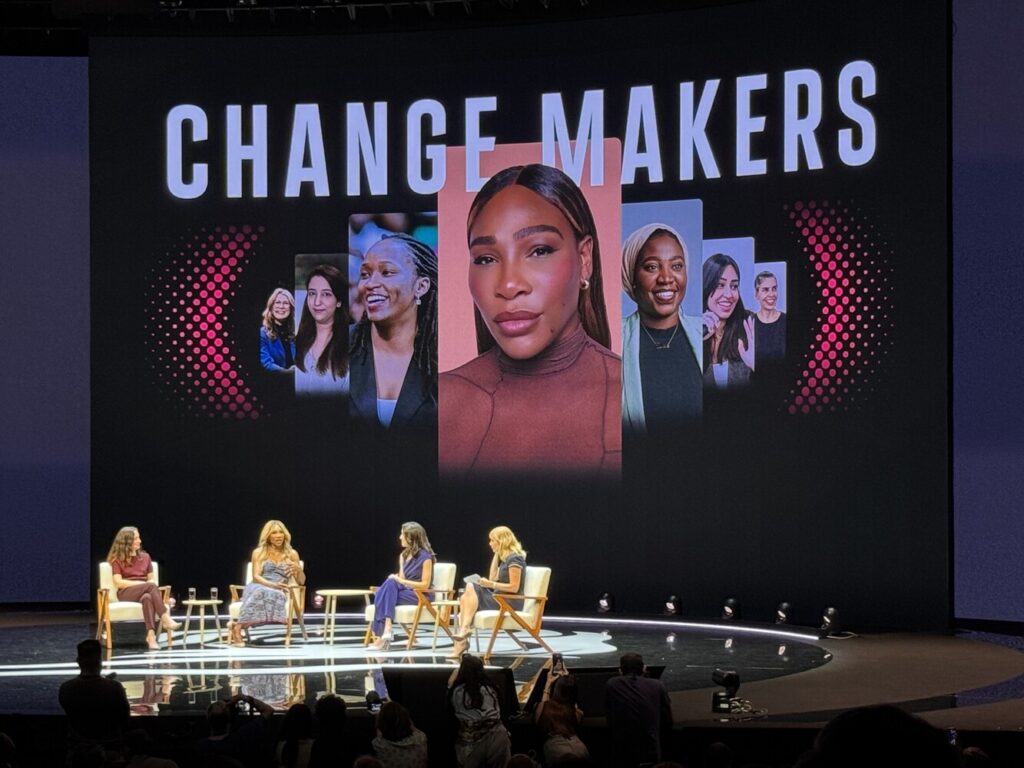
Many of us associate entrepreneurship as the top of the pyramid. The “Founder” title has a self-actualized ring to it. In today’s world and for the next years ahead, it’s closer to the base. Start-ups are looking for survival and safety as they work hard to reclaim control and direction to shape their own future. Some amazing examples supported by Serena and Reckitt included women-led innovations like water-generating machines in Pakistan and AI-powered diagnostics in Uganda. These businesses are addressing real needs and solving problems but they are also working to deliver in dividends to the pyramid – dignity, autonomy and hope to so many.
Brands Actually Actualizing
Brands need to show up without the “purpose-washing”. It’s just not good enough anymore and consumers are tired of fair-weather virtue signalling. Brands need to deliver substance. They must now demonstrate presence and show a true understanding of what it feels like to feel emotionally disengaged, angry and stretched thin. Brands need to read the room.
Some great advice from various talks today:
Deliver – In an unstable world be a pillar of trust. Delivering on your brand’s core purpose every single time is an absolute must. Do what you say. Whether it’s cleaning, healing, connecting our informing – doing it better than anyone else is a winning strategy. This may seem obvious but it’s surprising how far off course some brands veer when they try to cover too many bases to stay relevant.
Don’t add to the noise – Politics are exhausting and identity labels are fraught. Most people simply want to be seen as human.
Content is the pawn connection is the whole chessboard – aim to make memories instead of overloading on content to see what sticks on the wall. Take time to build out the craft that is advertising. Balance AI with humanity.
United Airlines shared a great example of transcending the normal playbook of travel advertising. Rather than focus on destinations and services, their latest creative shift leans heavily into culture. The new strategy is all about what it means to work and fly with United. It features the people, their stories, their expressions – that’s trust-building. That’s reading the room. That’s human.
The Real “Pyramid Scheme”
Whether we like it or not, our industry has been immersed into the business of addressing Maslow’s hierarchy of needs. We have some amazing tools to work with, but it won’t be easy. It will be imperfect, it will get messy, emotional and iterative. It will be human.
I was excited at the prospect today. This opportunity is enormous and the brands that show up with what it takes to meet the moment – with stability, listening, and solutions—will earn something much deeper than attention. They’ll earn trust that endures, even when the world feels uncertain.
And for those of us who’ve spent years using Maslow as a framework for media strategy or audience segmentation, we can look at this differently. We have a chance to use our platforms to help people climb the pyramid again. Here’s to building together.
More Bold Ideas from Cannes Lions 2025
Sonia Carreno is a proud member of the Cannes Lions Advisory Board. Visit Globe Media’s extensive coverage of Cannes Lions 2025 for more insights.
